The millennial generation has been over-analyzed for years now, but what exactly made us this way? Millennials are unique when it comes to media because we grew up before streaming had completely fractured American monoculture, so there are some movies you can safely assume most millennials have seen – you can also assume that millennials all share the bond of having been deeply affected by the same moviegoing experiences.
Videos by ComicBook.com
If any films are to blame for our generation’s quirks and anxieties, odds are they’re listed below.
10 Movies That Traumatized Millennials Forever
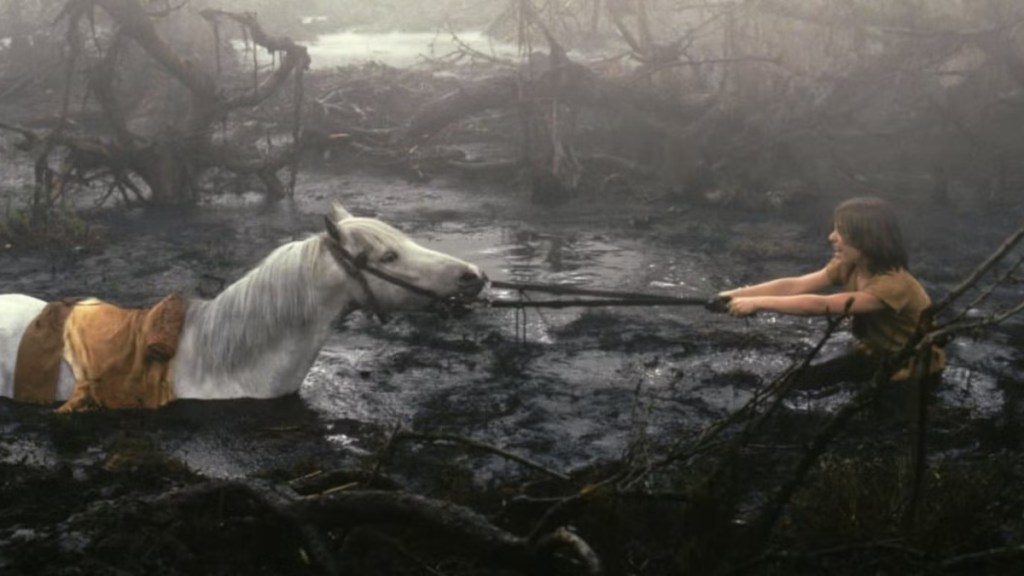
The NeverEnding Story
Opinions vary, but most authorities agree that millennials are those born between 1981 and 1997, so the 1984 fantasy The NeverEnding Story might be a bit on the early side for this group. If they weren’t there when it came out, they likely saw it on VHS thanks to an older sibling or cousin. This movie was a hit for the whole family, but for its youngest, most impressionable audience, it was also a source of some hard truths.
The NeverEnding Story forced many children to confront the truth that their beloved household pet would die someday — likely much sooner than they realized. The movie also depicted a magical stand-in for depression with “The Nothing,” which was an ominous bit of foresight for many of us. There’s a lot going on in this movie, and if you haven’t watched it since you were a kid, you may find some insight in revisiting it.
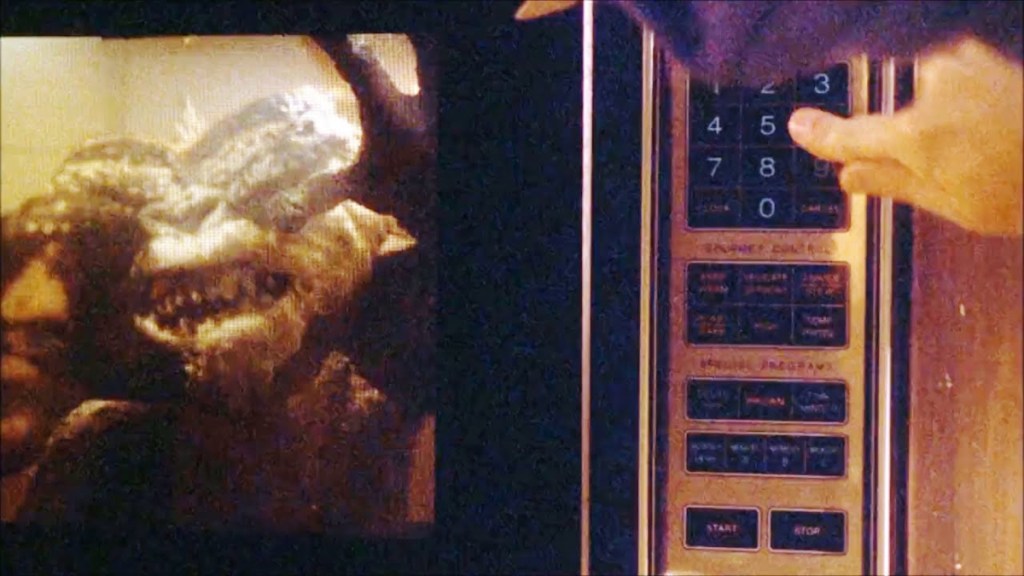
Gremlins
That same year, the MPAA itself had to step in on behalf of millennials who were caught off guard by the crafty little Gremlins – especially the sight of one being trapped and blown up inside a microwave. If you haven’t heard, Gremlins along with Indiana Jones and the Temple of Doom were both right on the cusp of PG and R ratings, and studios managed to secure PG ratings to sell more tickets. After much consideration, the MPAA actually created a new category called PG-13 to better warn parents about what they were taking their children to see.
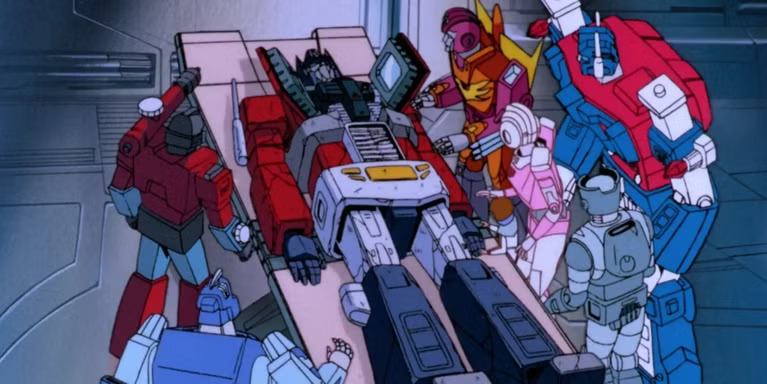
The Transformers: The Movie
Millennials everywhere became jaded before their time when they showed up to the theater hoping to root for Optimus Prime and his friends in The Transformers: The Movie – only to see most of their beloved characters die within the first act. Hasbro had new characters to debut to sell new toys — it’s debatable how many 5 or 6-year-olds understood those business concerns while watching Optimus Prime die.
In fairness, Transformers: The Movie is great once you get past the callous sales tactics at play, opening up space travel and other fun new elements for the franchise. Still, for millennials plagued by cynicism, this is probably one of the reasons why.
[RELATED: The Biggest January Movie of All Time Will Shock You!]
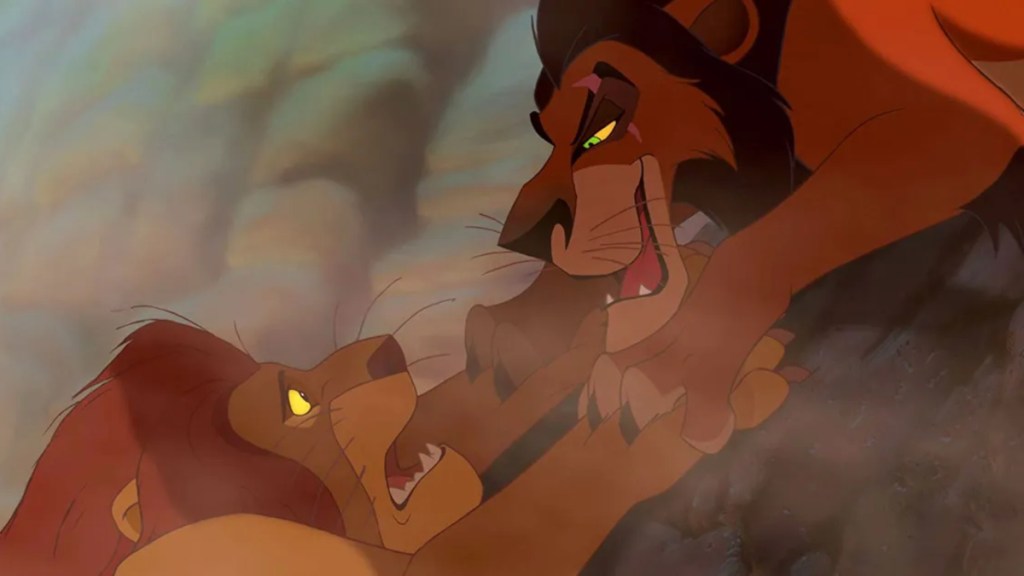
The Lion King
If you think you weren’t traumatized by The Lion King, you might need to find a cloudy view of the sky and take a closer look at your feelings. This movie is pretty brutal for its target audience, which is not to say that it’s too much. Children should be moved by art, and should begin to consider concepts like parental mortality early on (see also: Bambi), but it’s funny to look back and realize that your understanding of such concepts started with a cartoon about cats made by a powerful corporation.
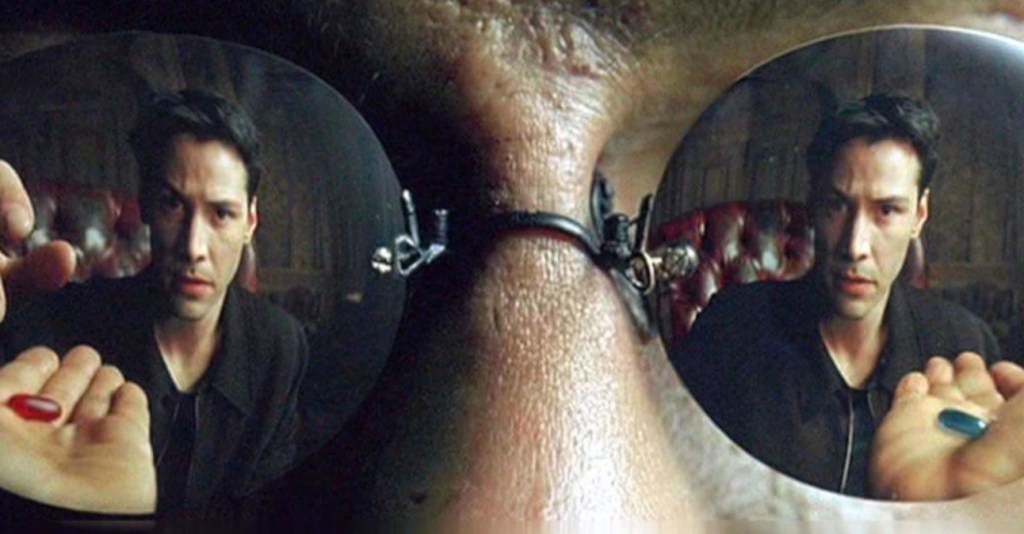
The Matrix
The Matrix was rated R, but let’s be honest: many of us saw it whether our parents wanted us to or not. “Traumatized” may be a strong word, but it’s undeniable that millennials are still preoccupied with this movie — look at how the term “red pill” and the suffix “-pilled” has taken hold in our vernacular. The idea that our reality was false and that humanity is being manipulated by nefarious unseen puppeteers took root with many millennials who were just expanding into critical thinking and questioning of conventions during their college-age years.
The movie has a clear social and political agenda, but it’s so good that viewers all over the world embraced it. Unfortunately, the sequels toil under unduly harsh criticism to this day.
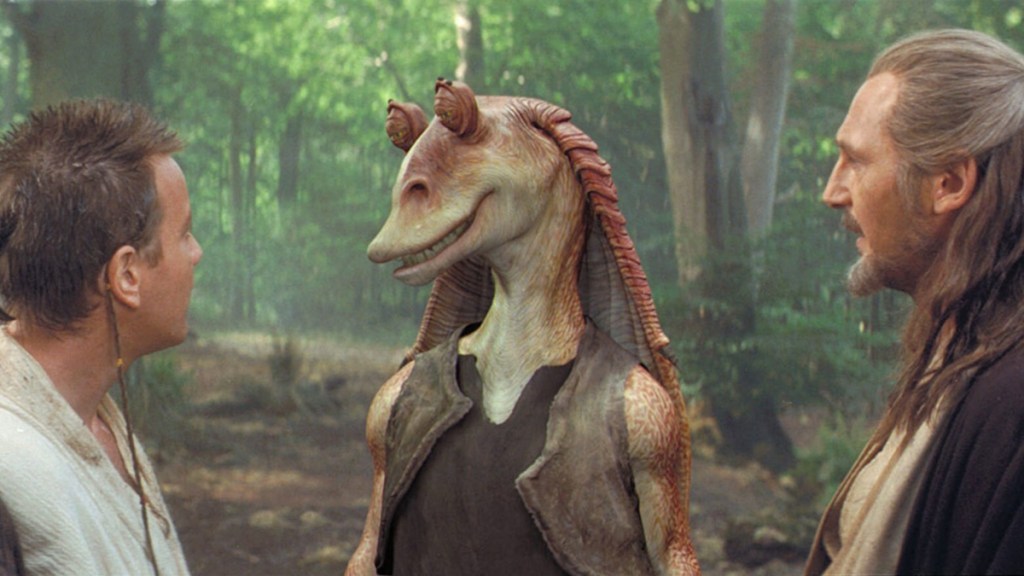
Star Wars: Episode I — The Phantom Menace
We may not have been there when the Ewoks offended our Gen X predecessors so badly, but after growing up with The Phantom Menace, I’d say we’re even. The Star Wars prequel trilogy began in 1999, leaving young millennials in an untenable situation. If we hated it, we were left with no Star Wars of our own; if we loved it, we were scoffed and dismissed by older fans. Whichever side we chose, we were forced to go back and confront those takes over years of rewatches, and many of us came to doubt those original reactions. The Phantom Menace was the first time millennials had their massive expectations fracture into such divisive reactions, at a time when those conflicting opinions were starting to collide on the Internet. It was a game-changing moment in entertainment – and changed a generation of Star Wars fans’ view of the franchise, forever.
If there was any silver lining, it was found in other forms of media. Millennials were served up some truly great Star Wars video games and TV shows, and those who wanted to love the franchise had books and comics to seek out as well. There are plenty of lifelong readers who started out consuming Star Wars books, which is a good thing.
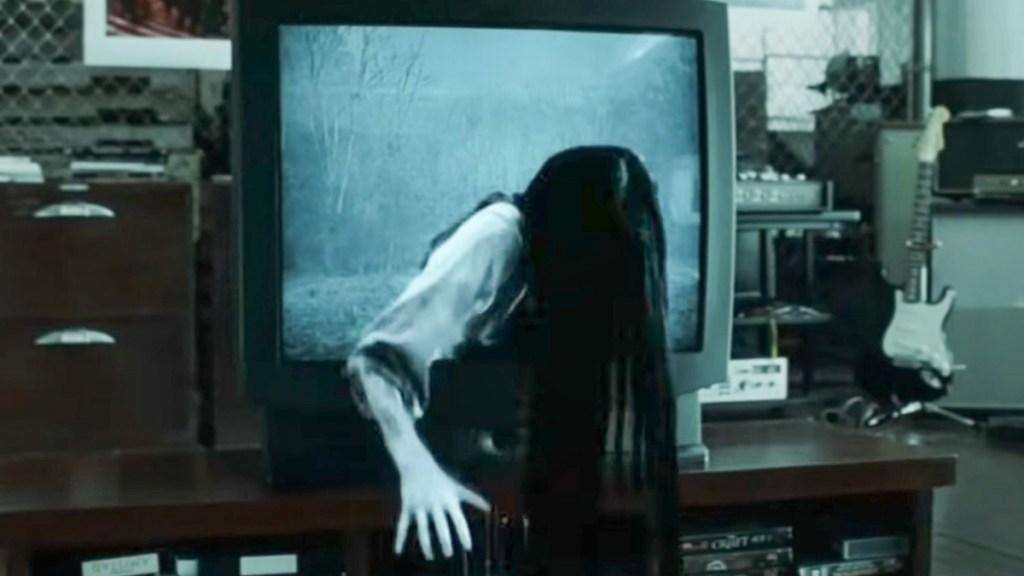
The Ring
That PG-13 rating mentioned above may have come back to bite millennials with the release of The Ring in 2002. This movie forged some hardened horror fans for life and left others scarred by the genre. Talk to a few people in the millennial age range and you’ll hear at least a few unique but traumatic stories about a childhood screening of The Ring. It ruined sleepovers, ended friendships, and made VHS tapes (not to mention DVD copies of the film) into objects of terror.
To be fair, a few other movies helped shape millennials’ relationship with the horror genre. However, The Ring is the film that turned our generation’s (overly intimate) relationship with television and viewing content into something deeply terrifying.
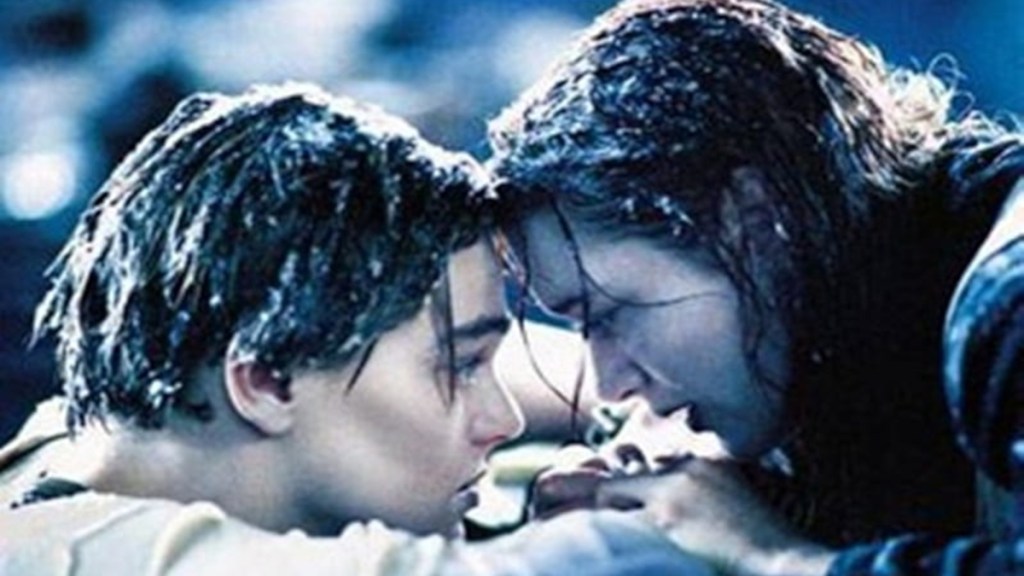
Titanic
Celine Dion’s heart may go on, but for a whole generation of millennials, those first innocent concepts of love died along with Leonardo DiCaprio’s Jack in a frozen ocean. James Cameron’s Titanic became a movie milestone for delivering a spectacle that earned $1.8 billion at the box office back in 1997 (an unheard-of achievement back then). However, what brought millions of teens and young adults back to theaters over and over again was the cathartic journey from passion to heartbreak watching Jack and Rose’s (Kate Winslet) arc of having a whirlwind romance that quickly ends in one of history’s greatest modern tragedies (the sinking of the Titanic).
If you need proof that Titanic left a generation scarred, simply search any chat thread about the film and you too can debate whether or not Rose had enough room for Jack on that floating door.
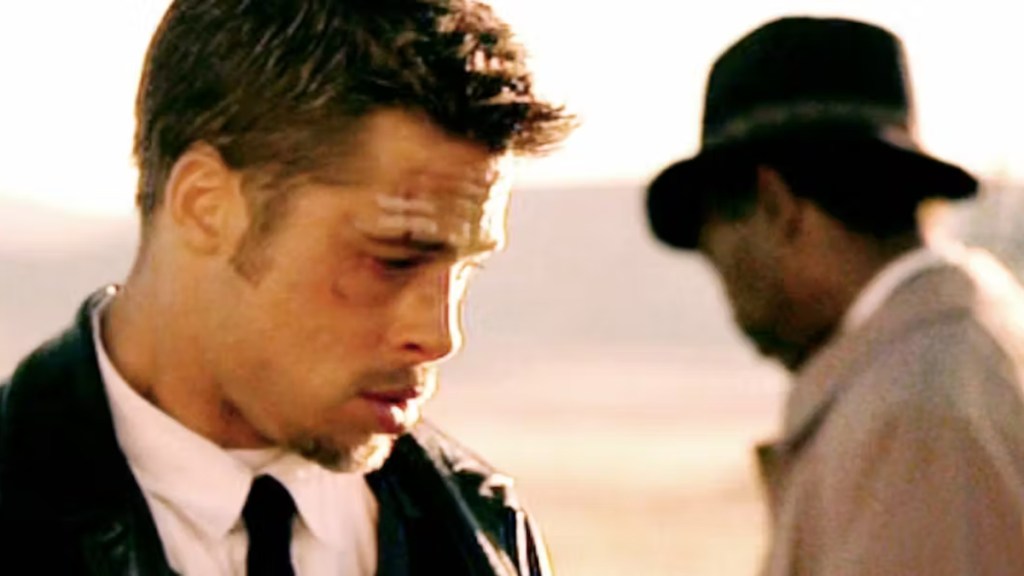
Se7en
There have always been certain rules and guidelines that govern cinematic storytelling – that is until David Fincher’s Se7en came along in 1995. The film and the ominous question of “What’s in the box?” became a dare for teens of the 1990s, who could still fully experience the dark, disturbing, and ultimately twisted detective story on home video for years before the Internet would make spoilers a rampant problem.
Gwyneth Paltrow and Brad Pitt would become major sex symbols of the ’90s, but thanks to David Fincher, millennials had it hammered home that even the prettiest people can suffer terrible fates; that the good guys don’t always win, and evil can have the last laugh. As the 21st century unfolds, Se7en has become the poster child for the string of tragic and traumatic world events that have been part of millennials’ life experiences – including the irony of Ken Spacey playing sadistic serial killer, John Doe.
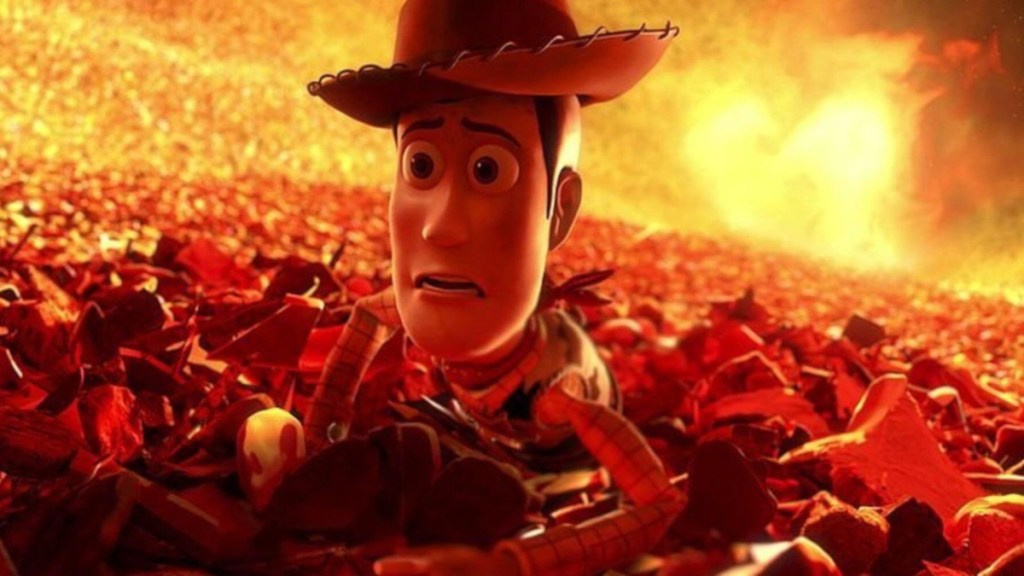
Toy Story 3
Finally, millennials didn’t become immune to trauma once they grew up. There are two groups of people with an unreasonably strong emotional stake in Toy Story 3 — millennials and their kids. The movie defined all sequel syndromes to confront its own premise in a surprisingly blunt way and put some of our favorite characters in mortal peril in the process. Emotionally, the film was a hard rumination on what happens to the childhood we eventually discard (like the toys we give away) – not to mention societal concerns like Facsim. It nailed deep thematic storytelling for both kids and adults.
You likely wouldn’t hear such grumbling about the prospect of Toy Story 5 if it weren’t for the lasting (traumatic) impression made by Toy Story 3.








